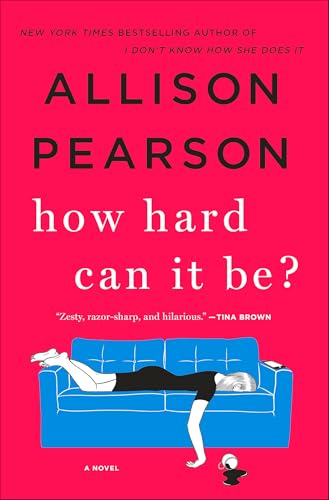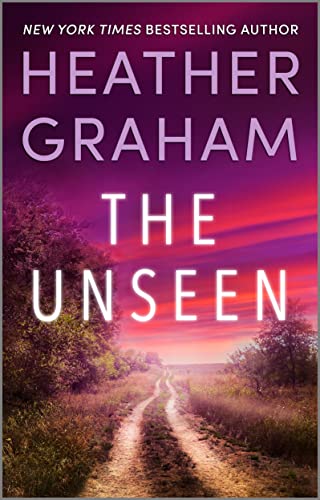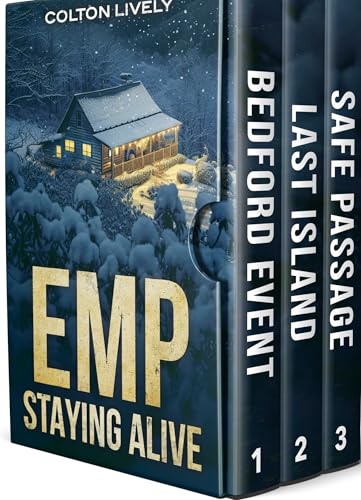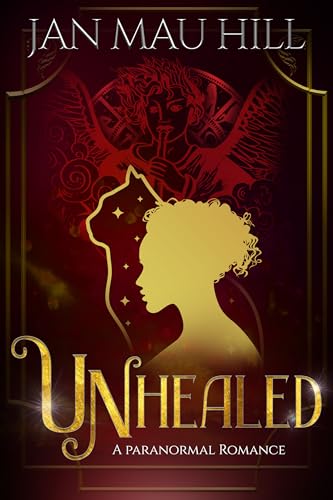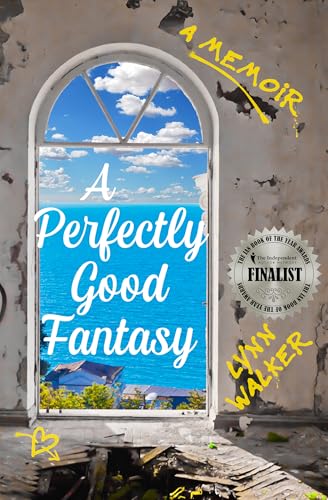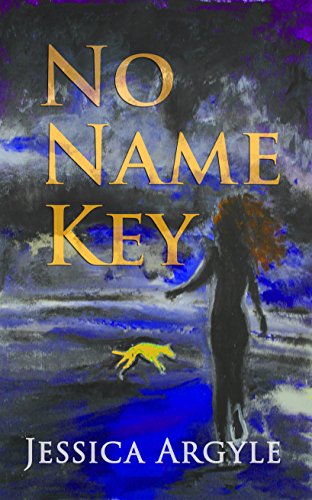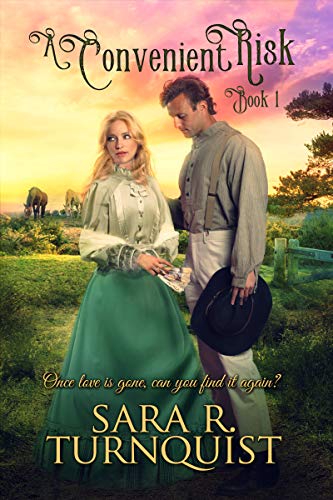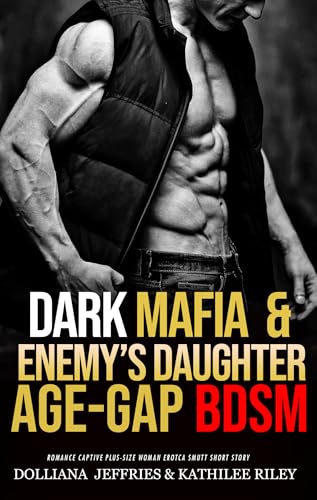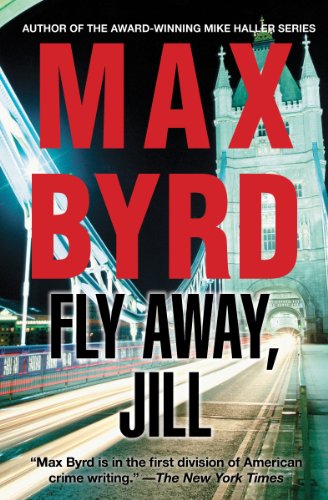On Friday we announced that David Greene’s Detonate (Tyrone King) is our Thriller of the Week and the sponsor of thousands of great bargains in the thriller, mystery, and suspense categories: over 200 free titles, over 600 quality 99-centers, and thousands more that you can read for free through the Kindle Lending Library if you have Amazon Prime!
Now we’re back to offer our weekly free Thriller excerpt:
The FBI hunts private investigator Tyrone King after he’s implicated in a plot to blow up a train on the border between Canada and the United States. Hoping to prove his innocence, King chases the real terrorists from Niagara Falls to New York City with the help of Sarah, a passenger on the train.
King goes undercover to try to stop the next bombing. But after he gets to know one of the terrorists, he realizes he wants to save him.
As the FBI, King, Sarah, and the terrorists all converge in New York City, the fate of the Statue of Liberty hangs in the balance.
And here, for your reading pleasure, is our free excerpt:
Detonate
By David Greene
First Four Chapters for Preview
Detonate
Copyright ©2012 by David Greene
“Always forgive your enemies; nothing annoys them so much.”
– Oscar Wilde
Chapter 1
At 10:30 AM Amtrak train number 64, the Maple Leaf, traveling from Toronto to New York, pulled into the last station on the Canadian side at Niagara Falls, Ontario. The train was eight minutes late.
King sat in a regular coach class seat. A couple sitting across the aisle from him gave him the once-over. He was used to that. Some people thought his dreadlocks meant he was a drug dealer. Other people wondered if he sang reggae. But the couple sitting across from him wasn’t an ordinary couple.
Two hours earlier, King had watched them when they boarded the train. The young man had pulled a black roller bag, the young woman a pastel pink one. Cute, King had thought. Gender-coordinated luggage colors.
They’d climbed aboard the train and made their way down the aisle to the seats across from him. While the man heaved the pink and black bags up to the overhead bin, the woman took off her shawl. After the man sat in the window seat, the woman placed her purse beneath the aisle seat, then sat down beside him.
The woman wore a lime green hijab that covered her head in a crinkly, crepe-like fabric. The man wore jeans and an olive green t-shirt. His hair was curly jet-black. His beard, also black, was on the verge of being scruffy. But his clothes were wrinkle free, as if he’d just ironed them. His posture was formal. He held his head steady and erect. He stared forward. He appeared to be deep in thought.
Since boarding, the couple hadn’t spoken. But now, as the train came to a stop at the Niagara Falls station, the young man turned to the woman and said, “The time has come.”
The man spoke in Arabic, but King understood what he said. Five years earlier, he’d been a U. S. Army interpreter/translator. He spoke Arabic. But the man across the aisle had no way of knowing that.
“Jasmeen,” the young man said gently. “You must get off now.” He put his arm around her shoulder. “Before the child is born.”
Jasmeen frowned. A curl of raven hair peeked from beneath her scarf. Her eyelashes and brows were thick and dark. Her eyes, like her scarf, were emerald green. She did not look pregnant.
“If the child is not born, they will take you off the train,” she replied, also in Arabic. “You’ll have trouble on the American side.” She pulled his arm off her shoulder. “Kareem…” She fixed her eyes upon him. “The child must come before that.”
King tried to place where they were from. The dialect sounded like Iraq, he thought. Or possibly Syria.
Kareem nodded. “Do not worry,” he said. “The child will be born on time. I will call you from the caves at one o’clock.”
Jasmeen stood and bowed. “Allāhu Akbar,” she said. Then she picked up her shawl, which hung on the back of the seat, and wrapped it over her shoulders. She reached beneath the seat in front of her and pulled out her handbag. Without another word, she turned and made her way to the back of the car.
A moment later, King saw her step onto the train platform and walk toward the station. Then she stopped. She looked back at the train. She opened her handbag and dug around. She pulled out something that looked like a phone. But then she put it back, turned, and walked into the station.
To King, it looked like she was leaving and not coming back. He looked up at the overhead shelf across from him. The pastel pink roller bag was still there. Something is wrong, he thought.
King stood and stepped into the aisle. He leaned over to speak to Kareem. “Excuse me,” he said. “I wonder if your companion has forgotten her suitcase.” He pointed up to the overhead shelf.
Kareem was startled by the interruption. His face was expressionless, but he blinked several times. He glanced up at the pink bag on the overhead shelf. He shrugged. He closed his eyes for a moment, then opened them, and said. “Thank you, but she did not forget the bag. I am taking the luggage to New York for her. She will join me there in two days.”
King nodded, and then sat back down in his seat. OK, fine. He looked out the window at the station. The woman, Jasmeen, was gone. The station platform was quickly emptying out. King looked at his watch. The train was due to leave in less than a minute.
King was puzzled. He mentally replayed the couple’s conversation. She’d spoken of a child coming soon—but she didn’t appear pregnant. She’d warned Kareem that he’d have ‘trouble’ on the American side and that the child must be born before that. King thought he heard Kareem say he’d call her from the caves at one o’clock. Maybe his Arabic was getting rusty. But he doubted it.
The train began to move. Soon the Maple Leaf would cross the bridge over the Niagara River and enter the United States. King looked across the aisle at Kareem. He had something in his hand. It looked like a mobile phone, but it had a thick short antenna and bore the word Cobra on it. King had seen a device like that before. It was a GMRS radio, a two-way radio, like a walkie-talkie, but higher quality. In the U.S., a person who wanted to use a two-way radio had to get a license. But in Canada, anyone could use a short-range device.
The last time King had seen one of those radios was in Afghanistan. A Taliban insurgent had used a GMRS to detonate an improvised explosive device that blew up the Humvee traveling in front of him. Why would a man on a train need a walkie-talkie instead of a cell phone? King thought about the security admonition he’d heard hundreds of times. If you see something, say something. Perhaps he ought to say something to the conductor. But what would he say? There was nothing incriminating to report. But King couldn’t just disregard his suspicions. If you see something, say something.
On impulse, King stood again, put one foot into the aisle and faced Kareem. With a pleasant smile, he said in Arabic, “I hope you aren’t planning to blow up something with that.”
Kareem’s face went ashen. He stood and said, “Excuse me.” He set the two-way radio on the window seat and stepped into the aisle. King stepped back out of the aisle. He relaxed a bit when he saw the device was out of Kareem’s hands.
Kareem pivoted toward the overhead shelf that held his luggage. He pulled the black roller bag down, and set it on the aisle seat. He turned his back to King, unzipped the outer pouch of the bag, and pulled something out of it. He picked up the two-way radio from the window seat. Then he turned around to face King. He held a handgun. He pointed it at King’s chest.
King raised his eyebrows. Before he’d joined the army, he’d trained in Aikido, the Japanese martial art also called ‘the Art of Peace.’ It emphasized the ability to relax the mind and body, even in the stress of dangerous circumstances.
King stood six feet tall—which was four inches taller than Kareem. He kept the smile on his face, even when Kareem said, in English, “Don’t move.”
King assessed the situation. The two-way radio was in Kareem’s left hand. The gun was in his right. King had studied Aikido, but this called for improvisation. He glanced around the car at the other passengers. There were only a few. Most had already left the train on the Canadian side of the falls. A woman with a boy sat three seats away. She stared at the gun with a look of incomprehension. King spoke in her direction, “Don’t worry, ma’am,” he said. “He won’t use it.”
Kareem turned his head for a split second toward the woman and the boy. In that moment, King executed an Aikido technique called nikyō, a pronating wristlock that torques the arm and applies painful nerve pressure. He silently counted his breaths.
One. He dropped down and to the left. With his right hand he knocked the barrel of the gun down and to the right. Instantly Kareem fired the gun. With a loud report, the bullet ripped into the velvet blue fabric that covered the padding on the seat cushion. The woman nearby screamed.
Two. Coming back up, King gripped Kareem’s right wrist with his left hand. Using nikyō torque, he applied nerve pressure until Kareem could no longer hold onto the gun, which fell to the floor.
Three. Extending leverage to Kareem’s wrist and arm, King bent him down and to the side. Kareem swung out his right arm to try to keep his balance.
Four. King spun and gripped Kareem’s right wrist, which held the detonator. King applied pronating torque to the wrist until the detonator clattered to the floor.
Five. King pushed him all the way down to the right and pinned him on the floor.
Once on the floor, Kareem grunted. King could tell his wrists and arms were hurt. He waited until Kareem lay completely still. Then he focused on the roller bag on the aisle seat. He considered the various ways a bomb inside it could be detonated. Kareem’s two-way radio was on the floor nearby. But King had also seen Jasmeen remove something that looked just like it from her purse. Maybe she was the backup plan. She could use her detonator if she was anywhere within a two-mile range. They might also have rigged the bomb with a timer. King decided he’d better get the luggage off the train and away from people as soon as possible. But he couldn’t think of a way to do that and subdue Kareem at the same time.
He made a snap decision. He released Kareem from the pin. He picked up the pistol from the floor with his right hand. At the same time, he used his left leg like a shuffleboard stick to push the detonator and shoot it down the aisle.
He cradled the gun in the palm of his hand. It was a Sig Sauer P220. He hefted it, gauging its weight. He had to decide what to do with it. He had only an instant to decide. It would be easy to point it at Kareem, but it was a matter of principle with him. He’d renounced the use of weapons. Although he wasn’t willing to use the gun on Kareem, he had to be sure no one else could use it either.
He stood and removed the magazine from the gun. Then he ejected the round from the chamber and stuffed the magazine in his pocket. He put the empty gun back into the open compartment on the bag and re-zipped it. He grabbed the handle on the roller bag and pulled it off the seat. He stepped over Kareem and put the bag on the floor.
Kareem had flopped onto his stomach. He held his sorest arm, his right arm, out in front of him. King stood between him and the roller bag. Kareem rolled onto his back, holding his right arm, and grimaced. He said in English, “What are you going to do?”
King said in Arabic, “I’m going to look inside your bag and see what’s in it.”
Kareem blinked. He rolled onto his stomach to look for the radio. King had kicked it a good distance down the aisle. It had come to rest near a young woman. The woman stood at her seat, frozen in place, with one foot in the aisle. She stared at King. She had headphone earbuds in each ear. She pulled one of the wires until the earbud popped out of her left ear.
King pointed to the radio on the floor. “Pick that device up right now,” he said to her. “But don’t push any buttons on it. Keep it away from this man, and bring it to a conductor.”
The young woman popped the earbud from her right ear, but didn’t move. She looked at the radio. “What is it?” she asked.
King sized her up. Her clothes looked expensive. She wore a blue satin blouse with black silk crepe pants. A gold ankle bracelet glistened above the sandal on her foot. Her toenails were painted with pale lavender polish. He focused on her eyes. He tried to gauge her ki. In Aikido, ki was synonymous with life energy. He had a sense of strong ki from her. Would she have the courage to do what he needed her to do? He hoped she would. But she’d have to trust him. He knew it was a good idea to address a stranger by name if you wanted his or her trust.
“What’s your name?” King asked her.
She looked at him, then at the man on the floor, and then back at him. She waited a moment before answering. She was obviously sizing him up. Then she said, “Sarah.”
“Sarah, that device is a two-way radio,” he said. “It might be a detonator. There might be a bomb in this suitcase.” He held the suitcase up. “I’m going to get rid of the suitcase. While I do, you need to keep that thing away from him. If he gets to it, he’ll explode the bomb.”
Sarah looked back down at Kareem, who was crawling along the aisle, inching toward the detonator.
“Sarah, do it now,” King yelled. “Do you understand?”
She nodded. She looked at the object at her feet, and then around the train car. There was no one else. The woman with the boy had already scuttled away. Sarah bent and picked up the Cobra radio. She held it out at arm’s length in front of her. Her arm trembled.
Kareem had crawled close enough to her to reach out and grab at her leg. He closed his hand around her ankle bracelet, but his damaged wrist was in pain. He flinched.
Sarah felt him pull at her ankle. She let out a short, startled cry. She pulled back hard, and yanked her leg out of his grasp.
“Sarah, run,” King shouted. “Run now.”
King, Kareem and Sarah were in the second from the last car of a seven-car train. Sarah ran toward the front of the train. She ran without looking back. Within a moment, Kareem was on his feet, running after her.
Chapter 2
King was not sure if the bomb might be in the black or the pink bag—or maybe there were bombs in both bags. He changed his mind about opening the bags to look inside. There might not be time. He pulled the pink bag down from the rack, then looked out the window. The train was moving faster, but they were still in Canada.
He was strong enough to hold both bags up at once—one in each hand. He held the pink one in front of him, the black one behind him. He marched them carefully toward the rear of his car. He stepped into the passage that joined his car with the café car, the last car on the train. He saw a yellow stool, used to bridge the gap between the bottom train step and the platform.
He studied the doors on both sides of the train. He looked at the door mechanism to see how it worked. The design of the door allowed the top half to open separately from the bottom half. He put down the bags, the pink one on the stool, the black one on the floor. He grabbed the lever on the top half of the door, and pulled it up until the lock disengaged. Then he swung the door’s top half open. Air rushed in from the opening. The train was rapidly gaining speed.
The train was traveling too fast for him to jump off. He wanted to get rid of the bags, but he had to be careful about when to eject them. At any moment, Kareem might catch Sarah and grab the detonator. He had to be sure the bags went out at a safe spot. He lifted the pink bag off the stool, and put his foot in its place to steady himself.
Sarah had cleared the fifth car, but still hadn’t seen a conductor. Now she ran into the fourth car. She was heading toward the front of the train. In the fourth car, three people stood in the aisle, blocking her way. She shouted at them. “Watch out. Let me through.” Then she turned and pointed behind her. “Stop that guy!”
The people in the aisle, two men and one woman, turned to look at her. Without speaking, they ducked out of her way. But as she passed by, she could tell none of them was going to step in the aisle to block Kareem. He was going to get past them.
She continued to run. As she ran, the long thin wires from her earbuds dangled from her right pocket. The wires flailed and slapped against her pant leg. As she passed the restroom at the end of the fourth car, one of the wires lassoed out. It hooked on the lever of the handle to the restroom door. Her iPhone was upside down in her pocket with the wire wrapped around it. When it caught, the phone pulled up and snagged in her pocket, which jerked her to a stop.
She pulled hard against the cord, but couldn’t move. It took her a moment to realize she had to stop pressing forward. She had to back up enough to put slack in the cord so she could get the phone out of her pocket. She fumbled the phone out of her pocket, and yanked it toward her. But the earbud cord, still snagged on the handle, popped out of the phone jack. Now she had the two-way radio in her left hand and the phone in her right. She heard Kareem coming up behind her. He was very close.
She decided to drop the phone to divert him. But she panicked. She looked at her hands. She couldn’t remember which device was which. She stared at each hand—first one, then the other. The object in each hand was about the same size. Her heart was racing.
She looked around and saw the headphone buds dangling from the doorway to her right. Just as Kareem lunged to grab her, she dropped the device in her right hand onto the floor. When he saw the device fall from her hand, he knelt down and snatched it up.
King felt an abrupt change in the roadbed as the train rolled onto the bridge over the Niagara River. He looked at his watch. It was 10:38 AM. The Maple Leaf crossed the Niagara River at the point where the rapids began. The deep gorge that held the river as it streamed away from the falls narrowed at this point. The narrowing canyon forced millions of gallons of water in the river into an accelerating trough that formed dangerous white water rapids.
King held the pink bag against his knee. It was a Samsonite hardside spinner. He made an instinctive assessment. He concluded that Jasmeen wouldn’t have left the pink bag behind had it not been meant for a purpose. He got up on the stool and brought the bag up to waist height. He propped his right foot on the ledge of the unopened bottom half of the door. He saw the trestles holding the bridge sliding sideways before him. He calculated he’d have to aim carefully to hit the open space between the girders, or else go high and throw the bag above the upper beam of the structure. He went high. He steadied his leg on its perch on the door. He swung his arms back and lobbed the Samsonite—up and over the top of the beam. Then, without waiting to see what happened to the first bag, he jumped down, grabbed the black bag, and did the same thing with it.
This time he watched. The black bag fell 300 feet from the top of the bridge down into the gorge and splashed into the rapids behind the pink bag, which was already rushing downriver like a raft.
Along the boardwalk at the White Water Walk tourist attraction on the Canadian side, a little girl tugged her mother’s arm. She pointed at the pink bag. Her mother smiled when she saw the pink and black Samsonites racing down the rapids. A group of tourists on the boardwalk moved toward the railing and leaned over the railing to watch the roller bags cascading down the rapids.
Kareem punched at the surface of the phone until he realized it was the wrong device. He threw it on the floor. He screamed at Sarah, “Stop, I have a gun. I will shoot you if you do not stop.”
She stopped. She was too frightened to turn around. Kareem came up behind her. He didn’t have a gun, but he snatched the two-way radio from her left hand. Then he fell to his knees and concentrated on punching buttons on the device. Breathing hard, he stopped and stared at the key pad. He slapped his hand on the floor and swore. He hit the cancel button.
The bags weaved and bobbed. The raging cascades hurled them forward until giant boulders in the river knocked them like pinballs. They ricocheted from rock to spray and back to rock, all the while zigzagging downstream. Some of the tourists raced along the boardwalk to keep in line with the floating luggage as it coursed alongside them twenty feet away. The bags were rushing toward the massive whirlpool that was half a mile beyond the boardwalk at a hairpin bend in the Niagara River.
Kareem pushed the buttons again. This time he pressed them slowly and deliberately. He entered the detonation code numbers on the Cobra keypad. When he was done, he opened his eyes wide. He punched on the “Call” button. The device emitted a chatter of fast high-pitched beeps.
More than a mile from the bridge, an enormous explosion erupted in the gorge. The roller bags had traveled at thirty miles per hour past the end of the white water boardwalk. But they hadn’t yet reached the whirlpool rapids. The bombs exploded from deep in the gorge somewhere between Ferguson Street on the Canadian side and Findlay Drive on the American side in a gigantic blast of water and rock, which flew up hundreds of feet into the air above the river, and then clattered back down to the rocks with a torrent of water. The shrapnel fell entirely within the chasm, causing a monstrous noise. A piece of it fell on a teenage boy who had run to the end of the boardwalk to watch the luggage. The projectile sliced open a gash in his right arm above the elbow. It took him a moment to process what happened. Then he cried out. All around him, the other tourists had ducked beneath an overhang on the canyon side of the walk just as the debris rained down. No one but the boy was hurt.
Kareem looked up when he heard the explosion. He shouted, “Muhammad,” and clasped his hands together as if in prayer. He whispered, “Peace be upon Him.” But then he lowered his gaze. He wasn’t sure how to interpret the magnitude of the explosion. Something was off. The sound was too far away. He rushed to look out the small window in the exit door of his car. He pressed his face to the glass. Within a moment, he saw what had happened. His mission had failed. He dropped back down to his knees and bowed his head into his hands.
King stared out through the open space of his exit door. He saw that the bombs had gone off past the end of the boardwalk. He heard footsteps and turned to see the uniformed Amtrak café attendant standing across from him at the doorway of the café car.
“What the hell are you doing?” the man yelled.
“Had to get some fresh air,” King said. Then he turned from the attendant, and began to run back toward the front of the train. It was obvious Kareem had wrested the two-way radio from Sarah. But he wasn’t sure what Kareem would do next.
Chapter 3
When the Maple Leaf finished crossing the bridge over the river, it arrived in the United States. The train approached the depot in Niagara Falls, New York. The Amtrak conductor had heard the explosive sound that echoed like booming thunderclaps, but that didn’t stop him from making his standard announcement.
“Ladies and gentlemen, our next stop will be Niagara Falls, New York. Before we arrive at the station, U. S. Customs agents will board the train to conduct a border inspection. You must remain in your seats at this time. Have your passports ready and available for inspection. Please remain in your seats until the Customs agents have completed their inspection and cleared the train.”
King did not sit down in a seat. He made his way to the third car, where he saw Sarah, sitting near the back of the car, her body rigid. King asked her, “Are you all right?”
She nodded. “Was anyone hurt?”
“I don’t know,” he said. “The bags landed in the rapids. They blew up down river in the gorge. They were past the boardwalk when they exploded. I think they were far enough away so that no one was hurt. But I’m not sure. It could have been much worse.”
She stared at him. “Who are you?” she asked.
“I’m Tyrone King.”
“What are you? A cop?”
“No.”
“Who’s that guy?”
“His name’s Kareem.”
“Is he a terrorist?”
“No doubt,” King said. “But thanks to you, I think he’s only a would-be terrorist.”
She had retrieved her phone. She held it up now in her left hand, then grabbed her left wrist with her right hand to steady it. “He got the detonator away from me. He set off the bomb. He told me he had a gun. But he didn’t.”
“It doesn’t matter,” King said. “You kept him away from the detonator long enough to keep him from blowing up the train. You were brave.”
She grimaced. “Then how come my hand is still shaking?”
King shrugged. “That’s how bravery works. Feel the fear and do it anyway.”
“Now what happens?”
“Difficult to say,” King said. “It depends on him.”
“Won’t they catch him? The border agents?”
“If he stays on the train. But I have a feeling he won’t.”
King looked out the window. The Maple Leaf was slowing as it entered the railyard. Multiple sets of tracks fanned out into the yard. A quarter-mile away, at the far end of the yard, a line of seven tanker cars sat on a track. An engine began to push the tankers. It pushed them 200 feet, and then stopped abruptly. All the cars stopped except the seventh car, the one farthest from the engine. The seventh car uncoupled from the train, then kept going. The decoupled tanker rolled down the track until it shunted off onto a sidetrack and kept rolling.
A minute later, the engine began to move again. It pushed the remaining tanker cars another 200 feet, then stopped. Once again, the last tanker detached and kept going. King realized the freight crew was using this technique to sort the tanker cars onto different sidetracks.
Meanwhile, the Maple Leaf had come to a complete stop. King turned from Sarah and made his way cautiously toward the front of the train. As he crept down the aisle, he glimpsed something moving outside the window to his right. Kareem was running across the railyard, headed toward the tanker cars. King looked out the window on the left side of the train. There he saw a group of U. S. border agents preparing to board.
King spoke to the passengers sitting near the end of the second car.
“How’d that man get out?”
A boy in a Yankee’s baseball cap pointed to an emergency exit window on the right side of the train. The window dangled outward, unanchored from its frame. Kareem must have jumped off the right side of the train while the customs agents were boarding from the left. King hesitated as he considered what to do. He could go right now to the border agents and tell them what had happened, tell them about the man who was getting away on the other side of the train. He knew they’d detain him and question him. At best, it might take them twenty or thirty minutes to realize that they should pursue Kareem.
He looked out the window. Kareem was headed across the railyard toward the tanker cars. If he got on the other side of those cars, he’d be out of sight. In twenty or thirty minutes he’d have disappeared completely. And once he escaped, he’d be free, free to try to blow up something else.
King decided he couldn’t let Kareem get away, no matter the consequences. He went to the emergency exit window and pushed it out. He folded his body and perched himself on the window frame. He looked down. He gauged it to be a seven-foot drop onto a paved surface. Should be easy.
He jumped out the window, but he landed wrong. His feet hit the ground first, out ahead of him, then his knees snapped back. He flung his arms backwards to break the fall. He came down hard on his hands, which took the brunt of the impact. Small bits of gravel in the pavement gashed his palms and ripped the skin of his fingers. He eased himself forward and sat on the ground, staring at his bloodied palms. His hands stung. Blood rushed from his head as he tilted his head back. He looked up at the open window.
Sarah stuck her head out the window above him. “Are you OK?” she yelled.
“I think so.”
“That jump was not too graceful.”
“Thanks.”
“Now he’s getting away,” she said.
“I know.”
King looked out toward the tanker cars. Then he looked back toward Sarah. “Tell the agents what happened,” he shouted. “I don’t want to get shot out here.”
He tried to stand up. But when he did, his legs wobbled and gave way beneath him. He fell back down to the ground. His right knee hurt. The blood rushed from his head again, making him dizzy. He leaned forward, hung his head below his knees, and closed his eyes.
Then King heard the sound of metal clanking. He turned to look over his shoulder at the door on the end of the second car. The door swung open. An arm dropped the yellow stool out. Then he saw Sarah. She carried a lavender Prada handbag. She stepped down onto the stool, paused, then gently hopped from the stool onto the pavement. She ran over to him.
“What are you doing?” King asked. “The border agents don’t like it when a passenger jumps off.”
“I’m not the one who jumped off,” she said. “I think I detrained quite gracefully.”
“Why? Why’d you get off the train?”
“Because you’re obviously hurt,” she said. “And meanwhile the guy is getting away.”
“I’ll be all right.”
“Can you stand?”
“I think so.” He started to stand up again. She grabbed him by the arm to help lift him up. She steadied him on his feet.
They both looked across the railyard. There were four cars left on the tanker train. Kareem had climbed onto the side of the fourth tanker car. He was climbing up the rungs leading to the top of the tanker. They watched as he went up over the top and onto the other side. He was no longer visible from the Maple Leaf.
“Uh oh,” Sarah said. “I think he got away.”
King started to move toward the tankers. But his knees still felt weak. He had to hobble. Sarah moved with him, half-holding him up.
“He can’t have gone too far. You should go back,” King said.
She shook her head. “You can’t walk on your own.”
“I’ll be all right in a minute.”
“He’ll be long gone by then.”
They kept moving toward the tankers, King hobbling and Sarah propping him up by his left arm. After a few minutes, when his knees had stretched out some, he felt better. He pulled away from Sarah. He tried to walk on his own. He tottered forward.
The engine maneuvering the tankers began to move. It pushed the tanker cars forward. As before, after two hundred feet, the engine stopped abruptly. The fourth tanker, with Kareem hanging on its far side, detached from the train and kept rolling down the track. It shot off to the right side of the main track.
King and Sarah shuffled quickly toward the third tanker car. When they got there, King reached up, grabbed the lowest rung, and climbed onto the side. Then he twisted around and called to Sarah. “Go back to the train.”
But she stood still and watched him. The tanker engine started up again. It pushed the last three cars 200 feet forward, then stopped. The third car shot loose, with King hanging onto its side. It shunted off toward the left sidetrack and rolled slowly forward. King leaned out as far as he could from his car to see what had happened to Kareem. But he couldn’t see him or his tanker.
Meanwhile three border agents and two other men in dark blue jackets imprinted with “Homeland Security” in bright yellow scrambled off the train at the exit door that Sarah had opened. All the men hit the ground running. The two men from homeland security had their guns drawn.
Chapter 4
When his tanker car began to slow, King jumped off it. He gauged he had traveled at least a quarter mile. As the car rolled past him, he looped around the back of it. Then he saw Kareem running toward a gap in the fence at the far side of the railyard. King looked back toward the Maple Leaf. The border agents and security men had stopped for a huddle near the tanker engine. One of the men was talking into his phone.
Then King saw the second tanker car—the one that had been next in line after his—coast to a stop along the same track onto which Kareem’s car had gone. Coming round the side, he saw a flash of gold near the ground, then above it the black crepe, and then the blue satin. Sarah was running toward him, waving her purse.
He stood and waited for her to catch up with him.
“What the hell are you doing?” he yelled. “You should go back to the train.” King waved his arms toward the train like a traffic cop. “Go back right now. Put your hands in the air. Walk slowly toward the agents with your hands raised. Then tell them what’s going on here.”
“I can’t,” she said. “It isn’t safe.”
“No, listen. It’ll be safer for you if you go back. They won’t shoot you.”
“Oh really? They just did shoot at me,” she said. “Several times.” Her voice mixed anger and fear.
King looked back toward the agents. The two from Homeland Security were running again, with guns out. “Damn,” he said. “They must’ve already had a report about the bombs exploding.”
“Seeing as how they’re shooting at us,” Sarah said. “I think we better run. When we’re in the clear, we can call somebody and explain what happened.”
King turned toward the gap in the fence. It opened onto a city street. Kareem was at the end of the street, moving out of sight.
“There he goes again,” Sarah said. “He keeps disappearing.”
King and Sarah ran after him. They ran through the gap in the fence and onto the street. They ran along the sidewalk, then turned right where they had seem Kareem turn. But when they got around the corner, he was nowhere to be seen.
“He must’ve gone between the houses,” King said.
They hurried a few hundred feet, then dashed across the street toward a parking lot that sat between a house and a one-story industrial building. At the back was an alley. The far side of the alley opened onto the backyard of another house. There was no fence, so they ran through the lot, across the alley, into the yard, past the house, and out onto another street.
Then they repeated the same pattern. They continued moving between houses as they made their way in a straight line away from the railyard. They crossed two more streets. When they got to the third, King waved his hand to signal Sarah to turn right.
They turned onto the sidewalk and stopped running. Kareem was nowhere in sight. A middle-aged woman sat on her front porch across the street. She had a book in her hand, but she looked up when she saw King and Sarah.
King reached out and took Sarah’s hand.
“We should act like a couple,” he said.
She looked at him doubtfully. “Yeah. OK. I guess.”
They walked hand in hand down the street. A busy intersection was just ahead of them. “We ought to catch a cab or get a bus,” King said. “Do you have any American money?”
She nodded, and lifted her purse. “I’m rolling in it.”
When they got to the intersection, the signs told them they were at the corner of Ontario and Hyde Park Boulevard. On the other side of Ontario was a Sunoco gas station. There was also a bus stop. The sign said the Route 52A Hyde Park bus went to the Niagara Transit Center. A paper schedule was taped to the sign pole.
King studied the schedule. “What time is it?” he asked.
Sarah had a watch that looked like a bracelet. The watch face was so small she had to bring her wrist close to her eyes to read it. “It’s 11:15,” she said.
“A bus stops here in five minutes.” He looked down Hyde Park Boulevard for signs of the homeland security agents. They weren’t in sight.
A helicopter buzzed up in the sky. They both looked up. A large blue helicopter was circling above the railyard. Without speaking, King yanked on Sarah’s hand and pulled her toward the Sunoco.
“Would you stop pulling me along like some luggage?”
“There’s a chopper up there. Don’t you understand? They’re looking for us.”
“Yeah, I understand. I get it. But let’s walk normally—no one dragging anyone else. It reads better from the air.”
“OK. Fine.”
Inside the gas station, King asked the man at the cash register, “How much is the bus?”
“Where you headed?”
“All over. We’re sightseeing,” King said.
The man nodded. “You want an all-day pass. They cost four bucks. You can buy one on the bus.”
“Do we need exact change?” Sarah asked.
The man smiled at her. “The drivers don’t make change,” he said. “But I do. You need some singles?”
Sarah had already taken a ten-dollar bill from her handbag. “How about a five and five ones?” she said. To King she said, “I’ll pay for us both.”
The man took the ten, pushed a button on his cash register and counted out the bills. He looked up. “You better hurry,” he said, and pointed out the window. “The bus is coming now.”
King and Sarah ran back to the bus stop. The blue helicopter circled low in the sky half a mile away, then turned in their direction. The bus belched a sound from its brakes when it stopped in front of them. They climbed in. The helicopter passed overhead as the bus doors closed. Sarah stuffed eight dollars in the cash box, and the driver gave her two passes. They made their way down the aisle and sat near the exit door.
They sat in silence looking out the window as the bus traveled down Hyde Park Boulevard. Then King said to her, “I was just thinking, I told you my full name, but I don’t know yours.”
“I’m Sarah Gaber,” she said. She extended her hand toward him. “You said your name is Tyrone King, right?”
“Yeah, but hey…” He shook her hand. “Fellow runaways generally call me Ty.”
“Do they?” She smiled, but then she withdrew her hand, and tilted her head. “OK, Ty. Do you have any kind of a plan?”
“I think we should go where there is a crowd—somewhere with plenty of witnesses.” King lowered his voice. “They won’t shoot at us in that case. At least I don’t think so. And then we ought to call the FBI to explain.”
“What about Kareem? You think he got on a bus too?” As she spoke, she looked around to assure herself that he wasn’t on their bus.
“Kareem had a plan,” King said. “I overheard him tell the woman with him called Jasmeen that he would call her from the caves at 1:00 PM. What time is it now?”
Sarah held the tiny watch up to her face again. “It’s 11:29,” she said. “Is that like a joke? Terrorists don’t actually live in caves, right?”
“That device Kareem had is a two-way radio. It’s a walkie-talkie. It has a range of only a mile or two. That means he has to be close enough to Jasmeen to be within range when he contacts her. But she got off the train before we crossed the border. So he’s going to have to get himself somewhere near Canada, while staying on this side of the river. My guess is he’s going to the Cave of the Winds.”
“Cave of the what?”
King leaned forward in his seat and faced her. “It’s a tourist attraction on the American side called Cave of the Winds. I went there when I was a kid. You go down an elevator. They’ve built wooden walkways so you can walk out from the base of the cliff close to the falls. From anywhere out on those walkways he’d have a clear range to Jasmeen on the Canadian side of the river.”
Sarah stared at a poster above the window touting a business school degree. “OK, but wouldn’t people see him?”
“They’d see a guy talking on his phone. Everyone on the cave tour is given a raincoat to wear because of all the mist and splashing from the falls. The raincoat would help him blend in with the crowd. It would help us blend in too.”
“Us?” She looked at him in disbelief. “You want us to chase after him?”
“It would be easier to prove what happened, if we nabbed him.”
“If we nabbed him?” She made a face.
“Well OK, if I nabbed him.”
“But you said you’re not a cop, right?”
“No, I’m not a cop. I was in the army. In an earlier life I worked in counter-intelligence in Afghanistan.”
She leaned her head back and studied the ceiling of the bus. “I don’t know,” she said. “It seems too dangerous.”
“He doesn’t have a weapon. I can take care of him.”
The bus stopped at a red light. Sarah looked at the woman across the aisle who was staring ahead blankly. She wondered if the woman could hear any of their conversation. “You’d take care of him how?”
“The same way I took away his gun. Using Aikido. It’s a martial art.”
“You mean like Kung Fu?”
“Kung Fu is Chinese. Aikido is Japanese. You learn how to defend yourself while protecting your attacker from injury.”
Sarah thought about that. Protecting the attacker seemed counterproductive. “You protect the attacker?”
“Absolutely.”
This made no sense to her. “Why?” she asked. “Why would you want to protect your attacker?”
“Aikido is non-violent—even in the face of violence. The point is, if you believe in non-violence, you don’t change your belief just because someone else is violent.”
“That reminds me,” said Sarah. “Why the hell didn’t you use that gun to keep Kareem in line instead of letting him chase me and the detonator all over the train?”
“I don’t believe in using guns.”
“That’s it? You don’t believe in using guns? What if someone was hurt in that explosion? A lot of people could have been hurt or killed. You risked all that just because you don’t believe in guns?”
“It wasn’t an easy decision.” King lowered his head. “I didn’t have much time to think about it. I had a picture of myself being able to get rid of the suitcases before he got to the detonator. And I had faith that you’d keep the detonator away from him.”
“Oh, that’s reassuring. You had a picture.”
“If I’d had more time to think about it, I might not have handled it that way. I don’t know.”
“Don’t you think you have to use force against violent people like Kareem? You have to threaten people like that with violence. Otherwise they don’t get the message.”
“I think they do,” King said. “It’s just not the message they expect.”
Sarah thought about that for a moment. Then she said, “I think the message they get is that you’re weak.”
King remembered when he first saw her. Strong ki. He wasn’t going to argue with her about guns. He let it drop. “Maybe,” he said.
Neither of them spoke. Then Sarah asked, “So are you good at this Aikido thing?”
“I’m just a beginner. I have a lot to learn.”
Sarah looked at him and nodded. “I guess in Aikido they don’t teach you how to jump from a six-foot high train window.”
“That jump was at least seven feet,” King protested. “I lost my balance on the ledge. The window was small; I had to fold myself in two like a clamshell cell phone. But you’re right. I screwed it up.”
Sarah said nothing. She sat in silence staring out the window as the bus pulled into the transit center. She thought about what King had said. His ‘protect the attacker’ thing was idealistic and impractical. And the gun thing was foolish. He’d put people’s lives in jeopardy. His idealism might be noble, but it was going to get him in trouble. He needed someone to look out for him.
“OK,” she said. “Let’s go nab him. But I can’t believe I’m doing this. And if you get hold of a gun again, give it to me. I won’t have a problem using it.”

